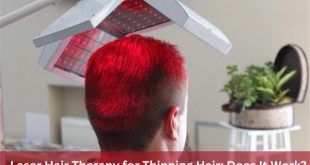Attention Deficit Hyperactivity Disorder (ADHD) is a neurodevelopmental condition that affects millions of people worldwide. It manifests through symptoms of inattention, hyperactivity, and impulsivity, which can significantly impact various areas of life, including self-esteem. Individuals with ADHD often face unique challenges that can influence their self-perception and confidence. Understanding the interplay between ADHD and self-esteem is crucial for fostering a supportive environment where individuals can thrive.
Understanding ADHD and Its Impact on Self-Esteem
ADHD can affect self-esteem in several ways. The constant struggle to meet expectations, coupled with frequent negative feedback, can lead to feelings of inadequacy and low self-worth. Symptoms such as distractibility, forgetfulness, and difficulty organizing tasks can result in missed deadlines, poor performance in academic or professional settings, and strained relationships. These experiences can contribute to a diminished sense of self-esteem.
Moreover, societal perceptions of treatment of ADHD can exacerbate these feelings. ADHD is often misunderstood or stigmatized, leading to stereotypes that individuals with the condition are lazy or irresponsible. Such misconceptions can further erode self-esteem, making it difficult for individuals with ADHD to maintain a positive self-image.
The Role of Self-Esteem in ADHD
Self-esteem is the way individuals perceive their own worth and abilities. For those with ADHD, building and maintaining self-esteem can be particularly challenging due to the ongoing difficulties they face. Self-esteem influences motivation, resilience, and overall mental well-being. Low self-esteem can lead to a negative cycle where challenges are perceived as insurmountable, further impacting performance and increasing feelings of failure.
Conversely, high self-esteem can act as a buffer against the negative effects of ADHD symptoms. When individuals with ADHD recognize their strengths and achievements, they are better equipped to handle setbacks and persist in the face of adversity. Building self-esteem involves recognizing and celebrating personal successes, no matter how small, and developing a realistic understanding of one’s abilities.
Strategies for Building Confidence in a Neurodiverse World
Focus on Strengths and Achievements:
Identifying and nurturing personal strengths is vital for boosting self-esteem. People with ADHD often have unique talents, such as creativity, problem-solving skills, and high energy levels. By focusing on these strengths and setting achievable goals, individuals can build a sense of accomplishment and self-worth. Celebrating even small victories can help reinforce positive self-perceptions.
Set Realistic and Manageable Goals:
Setting goals that are realistic and aligned with personal capabilities can help prevent feelings of failure and frustration. Breaking tasks into smaller, manageable steps and using tools like reminders and planners can make goals feel more attainable. Success in these smaller tasks can build confidence and contribute to a more positive self-image.
Develop Coping Strategies:
Coping strategies such as mindfulness, stress management, and organizational tools can help individuals with ADHD manage their symptoms more effectively. Learning techniques to handle impulsivity and distractibility can reduce the negative impact of these symptoms on daily life, leading to improved self-esteem.
Seek Support and Professional Help:
Therapy and counseling can provide valuable support for individuals with ADHD. Cognitive-behavioral therapy (CBT) and other therapeutic approaches can help individuals develop coping strategies, improve self-awareness, and address negative thought patterns. Support groups and coaching can also offer a sense of community and understanding.
Challenge Negative Self-Talk:
People with ADHD may be prone to negative self-talk and self-criticism. Challenging these negative thoughts and replacing them with positive affirmations can help improve self-esteem. Techniques such as cognitive restructuring, where individuals learn to identify and alter distorted thinking patterns, can be beneficial.
Build a Supportive Environment:
Creating a supportive environment at home, school, or work can greatly impact self-esteem. Encouraging feedback, understanding, and patience from family members, teachers, and colleagues can make a significant difference. An environment that recognizes and values the unique contributions of individuals with ADHD can foster a more positive self-image.
Promote Self-Advocacy:
Empowering individuals with ADHD to advocate for themselves is an important step in building self-esteem. Understanding their own needs and communicating them effectively can help individuals access necessary resources and accommodations. Self-advocacy also promotes a sense of control and self-efficacy, contributing to improved confidence.
Encourage Healthy Lifestyle Choices
Physical health plays a crucial role in overall well-being and self-esteem. Regular exercise, a balanced diet, and adequate sleep can help manage ADHD symptoms and improve mood. Healthy lifestyle choices can also contribute to a more positive self-image and overall sense of well-being.
The Importance of Embracing Neurodiversity
In a neurodiverse world, embracing and celebrating differences is key to building confidence and self-esteem for individuals with ADHD symptoms. Promoting an inclusive society that values diverse cognitive styles can help reduce stigma and foster a more supportive environment. Recognizing that ADHD is not a deficit but a variation in cognitive processing can shift perspectives and create opportunities for individuals to thrive.
Educational institutions, workplaces, and communities can play a significant role in supporting neuro diverse individuals. By implementing inclusive practices and providing accommodations, these environments can help individuals with ADHD succeed and build their self-esteem. Awareness and education about ADHD can also contribute to reducing stigma and promoting understanding.
Conclusion
ADHD presents unique challenges that can impact self-esteem, but with the right strategies and support, individuals with ADHD can build confidence and thrive in a neuro diverse world. By focusing on strengths, setting achievable goals, developing coping strategies, seeking support, and promoting self-advocacy, individuals with ADHD can improve their self-perception and achieve their full potential. Embracing neurodiversity and fostering a supportive environment is essential for creating a world where everyone, regardless of cognitive differences, can feel valued and confident.







